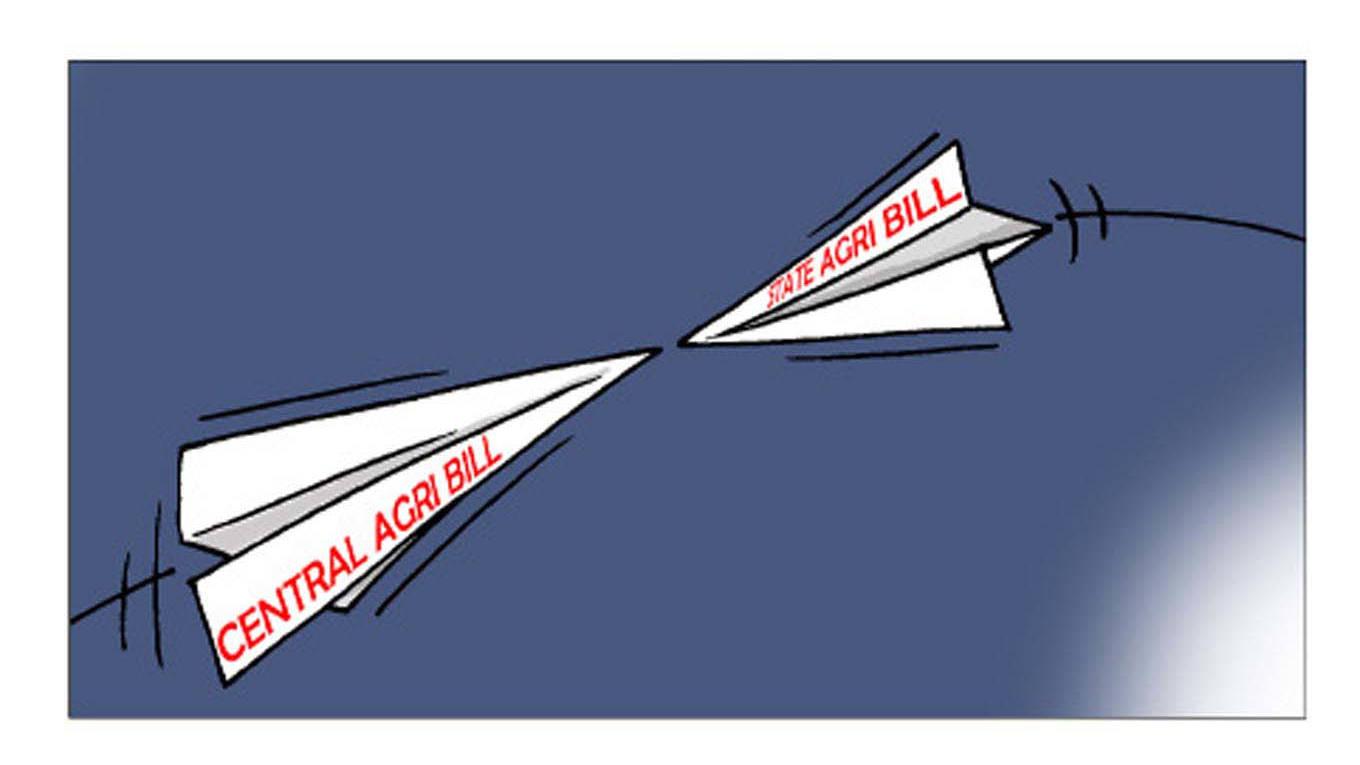After threatening to take an extreme stand for quite some time, on 20 October, the Punjab government, led by Captain Amarinder Singh, finally acted on its intent, when the state assembly unanimously passed three bills negating the basic provisions of the farm laws enacted earlier by the Union government. Thus, he became the first chief minister to fire a salvo, apparently reflecting the Congress party’s strategy of sending a message nationally of its vehement opposition to the Central farm rules via the state assemblies still under its command. The laws introduced by the Punjab government tend to strictly enforce the buying of wheat and paddy below minimum support price (MSP) a punishable offence. The state bill has also provisioned the levy of a fee from corporate houses purchasing outside the designated mandis. Early last week, a special session of the Chhattisgarh assembly also approved the Chhattisgarh Krishi Upaj Mandi (Amendment) Bill 2020, which contains amendments to the Mandi Act to ensure better prices to farmers. The state government of Chhattisgarh, in its version of farm laws, is believed to have taken a moderate route, wherein it is not exactly getting into any confrontation with the Central laws. The Ashok Gehlot-led government has also promised to follow its counterparts in Punjab and Chhattisgarh with the announcement of new agriculture laws on the floors of state assembly on 31 October. Amarinder Singh is clearly the face of the opposition coming from the Congress-ruled states. He has made it clear that, if the four amendment bills approved by the state assembly do not eventually get the assent of the President, the state government will be forced to take legal recourse. Singh, meanwhile, is expected to lead a delegation of party MLAs to meet the President, to seek his nod on the state’s farm bills in the interest of the Punjab farmers in the first week of November. But, while the Congress-ruled states are promising to up the ante and increasingly take a confrontational route with the Centre, many analysts are looking for merit in their bid to bypass the Central laws. The efforts of the Congress-ruled states to undo the Centre’s intention to usher in the pending reforms in the agriculture sector (earlier hailed by many as Indian Agriculture’s 1991 moment) is largely seen as an exercise in futility, driven more by political compulsion than a genuine drive to protect farmers’ interest. At the recent failed meetings between the agriculture ministry officials and the farmer unions, there was a clear demand from the unions that protection of crop prices, as per Minimum Support Price (MSP) rules, should be ensured for all 22 crops covered by the scheme. But, interestingly, Punjab’s farm bills are willing to provide protection only in the case of wheat and paddy. That is, if any private player tends to negotiate and buy these two crops below the MSP even outside the designated mandi, he may find himself behind bars for three years.
-

Illustration: Panju Ganguli

































